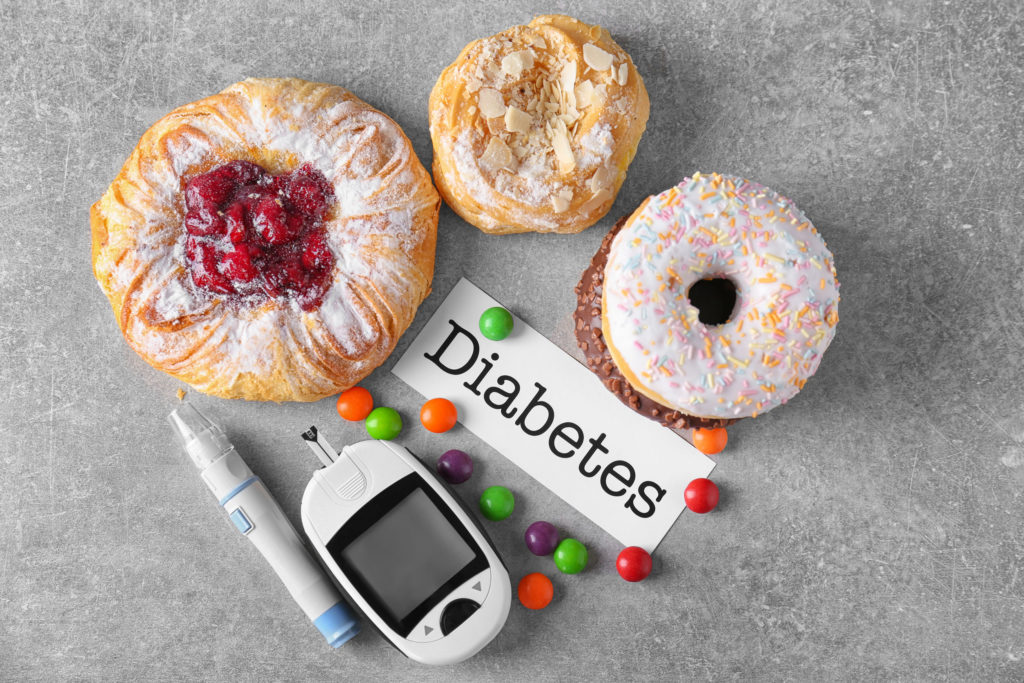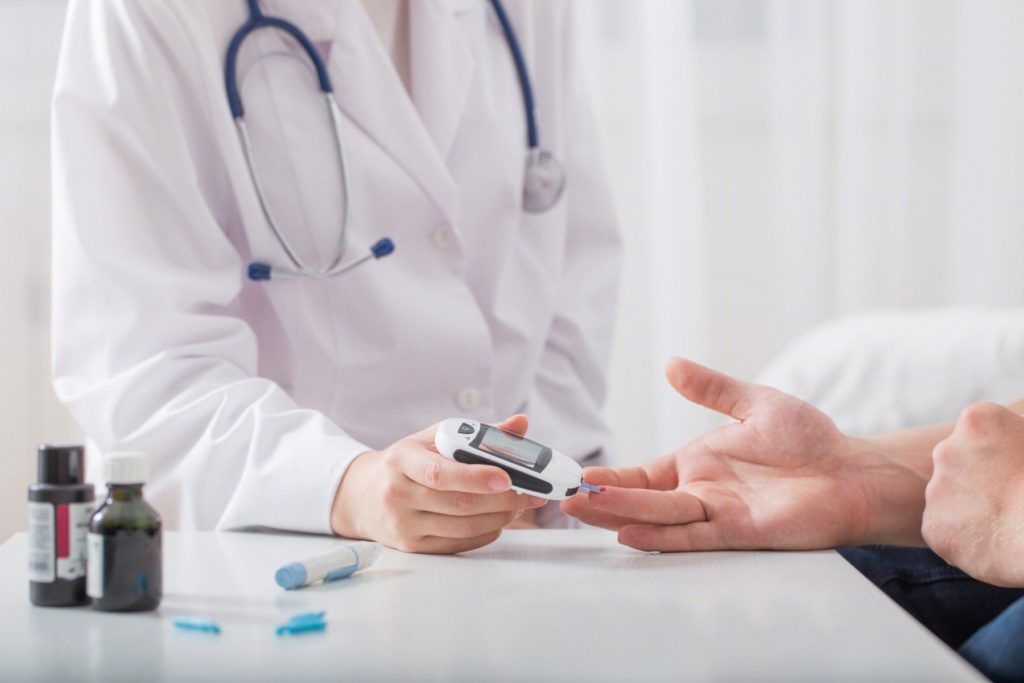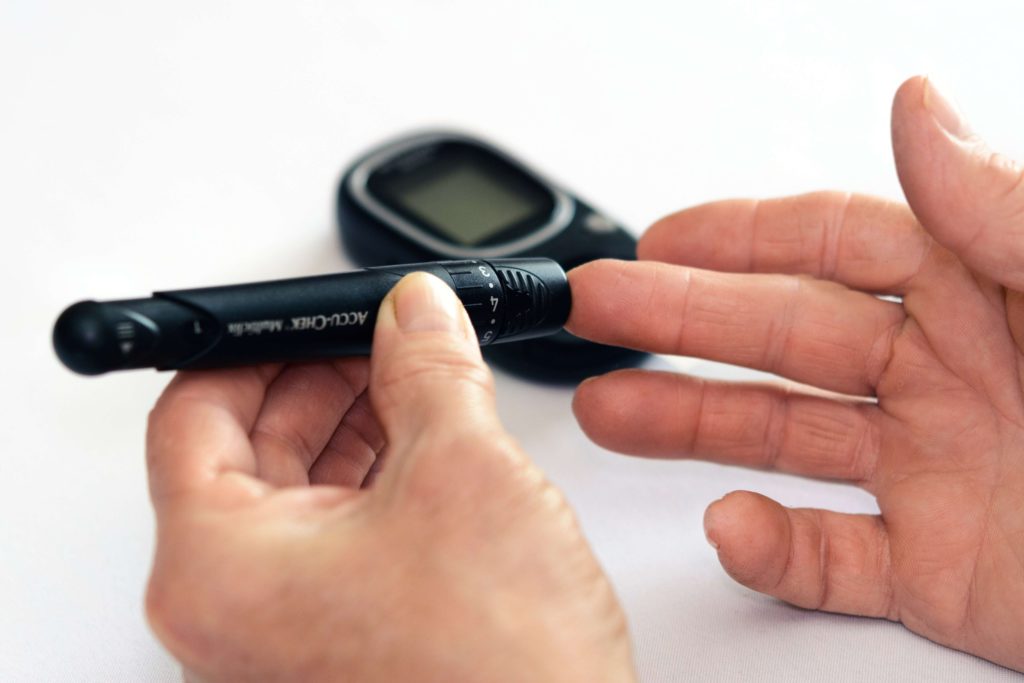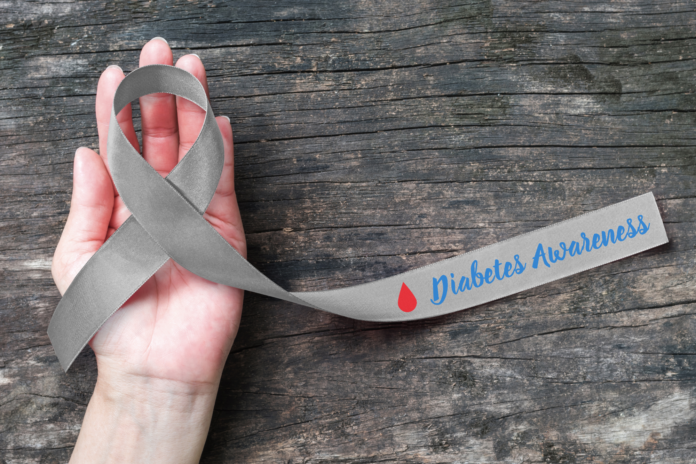When you first heard of the word “diabetes”, your likely thought about high blood sugar. High blood sugar is also known as hyperglycemia and is often underestimated component of your health. Over time, it can cause major health complications and could develop into diabetes. When the body stops releasing or responding to normal amounts of insulin, a hormone that allows your body to turn glucose into energy, as a result of the consumption of foods with carbohydrates, sugar, and fats. Here’s what symptoms may occur to your body when diabetes takes effect.
You can take control of your health and reverse your symptoms of diabetes. However, if left untreated, can trigger serious and even life-threatening conditions such as stroke, blindness, kidney damage, heart disease, cancer, and nerve damage.
After a meal or snack, your body will break down sugars from your food, changes them into glucose, and use them for energy in your cells. To accomplish this, your pancreas helps move sugar from your blood into your cells for storage as a source of energy.
If you have diabetes, this can deplete the pancreas of insulin-producing cells, this allows blood sugar levels to rise while the rest are deprived of much-needed energy. This can lead to a wide variety of problems affecting nearly every major body system.
The effects of diabetes on your body also depend on the type you have.
Type 1, formerly called juvenile or insulin-resistant diabetes, is an immune system disorder. This chronic condition is the result of the immune system attacking the insulin-producing cells in the pancreas, destroying your body’s ability to make insulin. With type 1 diabetes, you must take insulin to live. It is usually diagnosed in childhood or early teen years.
This type of diabetes is not at all associated with being overweight. And it is believed that it is a hereditary component and can be caused by an autoimmune condition.
Type 2 diabetes starts with insulin resistance. With this disorder, the pancreas can initially produce insulin, but your body’s cells can’t respond to it effectively. Insulin production decreases, which leads to high blood sugar.

It tends to develop after age thirty, so it is often called “adult-onset” diabetes.
Diabetes can be controlled. It can be effectively managed with diet and exercise. Also, it is important to track down blood glucose levels.
Gestational diabetes is due to high blood sugar produced during pregnancy. High blood sugar levels can increase the chance of having a miscarriage or stillborn birth. It can also increase the chance of developing type 2 diabetes later in life for both mother and child.
If you have gestational diabetes, it is usually controlled with diet, but in severe cases, insulin injections are necessary.
Endocrine, excretory, and digestive systems
The pancreas is located in your abdomen behind your stomach. It is responsible for producing glucagon and insulin. If your pancreas produces little or no insulin, your pancreas isn’t able to compensate with enough insulin production. This can create high levels of toxic chemicals, which may lead to a condition called diabetic ketoacidosis. Diabetic ketoacidosis is a medical emergency that occurs mostly in people with type 1 diabetes if they don’t take insulin. In diabetic ketoacidosis, blood sugar and ketone levels are very high, resulting in a critical health state.
Diabetic hyperglycemic hyperosmolar syndrome (HHS) occurs in type 2 diabetes. It is a potentially life-threatening condition involving extremely high blood sugar levels. When your blood sugar gets too high, your kidneys force you to go into overdrive to get rid of the extra sugar.
High blood glucose levels may cause gastroparesis – also called delayed gastric emptying – which is a disorder that occurs when the stomach takes too long to empty food. This occurs because the nerves that move food through the digestive tract are damaged, so muscles don’t work properly. Gastroparesis can also occur after bariatric surgery or another medical procedure that interrupts your digestion.
This disorder leads to a variety of symptoms that can include nausea, vomiting, feeling easily full, and heartburn.
The vagus nerve controls stomach muscles. High blood glucose from diabetes can damage this nerve. Many people with gastroparesis also have diabetes.

Kidney damage
High blood sugar can cause problems in any part of your body, including your kidneys. And it affects their ability to filter waste products from your blood. Kidney disease related to diabetes is called diabetic nephropathy. A chronic condition that occurs when the body doesn’t use the hormone insulin properly.
Damage to the kidneys from nephropathy can occur for as long as a decade before the first symptoms appear. Diabetic neuropathy can trigger a cascade of events that lead to even more serious complications. And the best way to preserve kidney health is to watch your diet carefully.
Circulatory system
Patients with Type 2 diabetes have two to three times the heart disease risk of the general population. Diabetes raises your risk of developing high blood pressure, which puts further strain on your heart. If you have high blood sugar levels, this can contribute to the formation of fatty deposits in blood vessel walls. Sugar can stay in your bloodstream and leak out of the liver into your blood, with subsequent damage to your blood vessels and the nerves that control them.
According to the National Institute of Diabetes and Digestive and Kidney Diseases, diabetes doubles your risk of heart disease and stroke. In addition to monitoring and controlling your blood glucose, good eating habits and regular exercise can help lower the risk of high blood pressure and high cholesterol levels.
Diabetes and smoking are a very bad mix.
If you have diabetes and you’re a smoker, your risk of developing heart disease is much higher than that of nonsmokers. It increases your risk for cardiovascular problems and restricts blood flow.
Remember that it’s never too late to quit.
Lack of blood flow can eventually affect your hands and legs and cause pain when you walk or exercise. This refers to intermittent claudication. It’s caused by a blockage of the arteries that supply blood to your legs and elsewhere peripherally. This condition is also known as peripheral neuropathy which causes decreased sensation in the extremities.
Integumentary system
Diabetes can also affect your skin. Diabetes affects the circulation of blood and thus leads to itchy, dry skin. Along with dehydration, your body’s lack of moisture due to high blood sugar can cause the skin on your feet to dry and crack. You can use petroleum jelly or gentle creams but if you cannot solve the issue with creams, you should check your blood sugar levels.

Unmanaged diabetes can also lead to three skin conditions:
Eruptive xanthomatosis – which causes hard yellow bumps with a red ring.
Digital sclerosis – which causes thick skin, most often on the hands or feet.
Diabetic dermopathy – which can cause brown patches on the skin.
Diabetic dermopathy is a fairly common skin problem for people living with diabetes. These skin conditions usually clear up when you get your blood sugar under control.
Central nervous system
Diabetes causes diabetic neuropathy or damage to the nerve cells. These cells play a critical role in touch, sensation, and movement. Some people will not have any symptoms. But for others, symptoms may be debilitating.
Diabetes can also lead to swollen, leaky blood vessels in the eye, called diabetic retinopathy. The condition is caused when blood sugar and blood pressure in the tiny blood vessels in the eye “spring a leak” and release blood into the eye.
Reproductive system
The changing hormones during pregnancy can cause gestational diabetes. For women with gestational diabetes, some complications may develop if she does not control their blood sugar levels. Women with gestational diabetes are also more likely to develop preeclampsia, which is a high blood pressure disorder during pregnancy.
Once the baby is born he/she may have low blood sugar and will need to be monitored during the first few days after birth.
You must work with your health care provider to manage your condition until the end of your pregnancy and even after giving birth.
If you or a loved one is living with diabetes, it’s important to keep it well-managed. With consistent monitoring and control, you may be able to avoid more serious complications of the disease.
Also, taking natural steps can save you from the expense and discomfort of insulin therapies and allow you to live your optimal life! To learn more about diabetes or how to control diabetes, visit our topic center.



